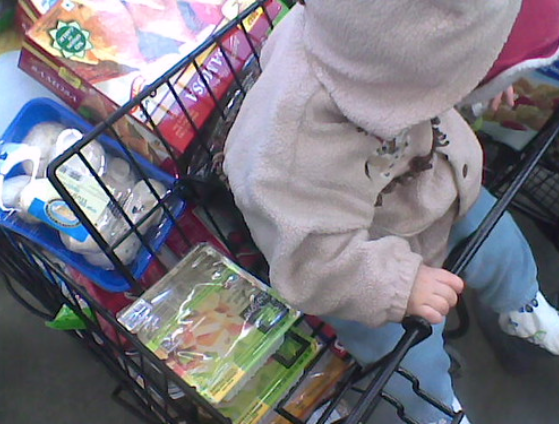CommentsPUBLIC HEATH-I would like to start this article by thanking Governor Gavin Newsom for his statements in a press conference on Saturday, March 21, 2020.
He expressed his appreciation for not only the healthcare workers that are on the front lines of this cronavirus health crisis, but he also expressed thanks for the employees of our grocery stores as well as our truck drivers who work long hours to get our food and other necessary supplies to us on a daily basis.
I also want to applaud the nurses who protested nationwide and asked the hospitals and health care centers to give them appropriate guidelines. Before going to work they wanted to know how to give care with the safest practices to protect their own health, the health of their families, as well as how best to protect their patients.
Nurses Protest Across the Country Over Mass Confusion
“Nurses across the country have staged a one-day protest over concerns that hospitals and other facilities are not sufficiently protecting them or the public against the coronavirus.”
I also want to express my sincere gratitude to the employees of every food service facility whether it is a restaurant or a grocery store for not staying home but for going to work to make sure that all of us have adequate food and other supplies during this crisis.
Our Grocery Stores
As the result of my CityWatch article, “Don’t Make the Same Mistake I Did: Use a Barrier!” I was contacted by a retired nurse with a Masters’ Degree in Nursing who had worked at a major health center.
She brought to my attention a problem she faced at two local grocery stores this past week, stating that the cashiers as well as the baggers of groceries were wearing non-disposable gloves as they checked out and bagged food. Her concern, which is legitimate in my opinion, is that these gloves might not be washed daily, and therefore instead of being protective of the worker, they are likely a potential source of carrying multiple pathogens (a bacteria, virus, or other microorganism that can causes disease). This is not only true for the workers who might touch their face with their gloved hands, but the gloves might contaminate the customers food packaging and grocery bags.
I am appreciative of my healthcare friend for bringing this issue to my attention so that it can be broadly addressed and brought to the attention of the various Departments of Health so that they can dictate specific guidelines related to the handling of food during the coronavirus pandemic.
I also want to thank the grocers who are providing special hours for the elderly to go to some markets while supplies are in stock so that the most vulnerable do not have to stand in line with other potentially less at risk individuals.
What we have learned about the life of the coronavirus on surfaces is here: “New coronavirus stable for hours on surfaces.”
“The virus that causes coronavirus disease 2019 (COVID-19) is stable for several hours to days in aerosols and on surfaces, according to a new study from National Institutes of Health, CDC, UCLA and Princeton University scientists in The New England Journal of Medicine. The scientists found that severe acute respiratory syndrome coronavirus 2 (SARS-CoV-2) was detectable in aerosols for up to three hours, up to four hours on copper, up to 24 hours on cardboard and up to two to three days on plastic and stainless steel.”

One other consideration is that researchers now believe that the virus is in fecal material according to this study from Japan:
“Coronavirus lurking in feces may be a hidden source of spread”:
“The novel coronavirus was detected in the loose stool of the first U.S. case — a finding that hasn’t featured among case reports from Wuhan, China, the epicenter of the outbreak. However, that doesn’t surprise scientists who have studied coronaviruses, nor doctors familiar with the bug that caused SARS.
Diarrhea occurred in about 10 to 20 percent of patients afflicted with severe acute respiratory syndrome about 17 years ago and was the source of an explosive SARS outbreak in the Amoy Gardens residential complex in Hong Kong.”
These are the safety precautions I see that should be implemented by our California Department of Health as soon as possible related to our food supply:
- The employees who are getting the boxes of food and supplies should wear heavy duty work gloves as they unload these cartons from the trucks, and as they take them to the store to stock the shelves. They have to use blades to open these boxes so you would not want them to open these boxes without adequate protection.
- After removing the tops of these boxes, employees should be instructed to wash their hands with disinfectant soap, and to dry their hands well. They should be given disposable gloves to take the merchandise from the boxes to place it on the shelves.
- Cashiers should be washing their hands, using disposable gloves, and using alcohol-based sanitizers. These gloves and sanitizers should be kept by their registers and should be used regularly.
- In a hospital environment, nurses and physicians, laboratory technicians, etc., are all trained to change their disposable gloves between patients and to wash their hands before using gloves and after removing them.
- Grocery cashiers and baggers should be using similar protocols. The baggers should also be wearing disposable gloves and washing their hands frequently.
- Reusable grocery bags should be prevented from being brought into the store to prevent the introduction of any number of pathogens into the shopping cart and onto the conveyer system where sometimes raw produce is placed.
- No dogs or pets should be permitted into grocery stores or restaurants with the exception of service dogs which must be allowed due to ADA requirements. Dogs also have the potential to carry any number of pathogens. No dogs should be allowed in shopping carts at any time.
- No dogs or pets should ever be left in vehicles just as it is illegal to leave young children in a car. Pets should be left at home.
- Children should be allowed to ride only in the infant seat of a shopping cart. Children who are placed inside the bottom of the cart can carry pathogens in on their clothing but most importantly on their shoes.
- Researchers have discovered that the coronavirus is being found in fecal material. As you wipe down the top rack of a shopping cart, keep in mind that a baby’s or infant’s diaper could leak, and that there is the potential for transmission of the virus from this material on the cart.
- Grocers should be requested to use high pressure hoses or similar devices to wash all shopping carts each evening.
- Shoppers again should be using the shopping cart wipes at the front of the store. Our State Department of Public Health should mandate these cart wipes at all grocery stores and drugstore entrances or carts in any stores where food is handled.
The coronavirus has awakened the public consciousness to methods of public transmission of illnesses. The risk of catching illnesses through these sources has always existed, so these laws need to be enacted for the future protection of everyone all the time.
(Chris Rowe, a former health care employee who has worked at Northridge Hospital, Tarzana Medical Center, and West Hills Hospital has a B.S. in Health Education. She is a 42-year resident of West Hills. She has written for the Los Angeles Daily News, RonKayeLA.org, OurLA.org, and CityWatch. She has a blog on the USC/ Annenberg Center for Health Journalism website and can be reached at [email protected]) Photo of Child: Creative Commons. Edited for CityWatch by Linda Abrams.














